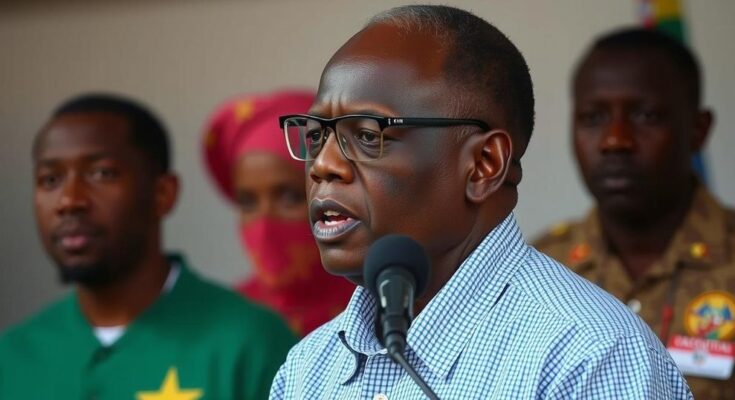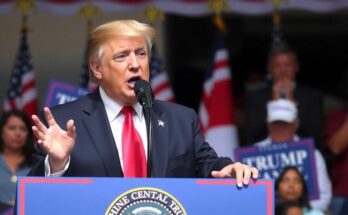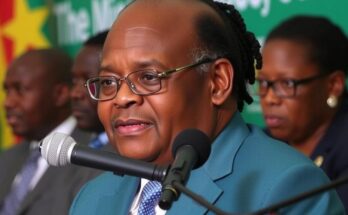Mozambique faces a tense wait for a ruling on disputed election results amidst allegations of rigging, resulting in significant protests and violence. The opposition leader warns of chaos if the initial results favoring the ruling party are upheld. Concerns over election integrity have been raised by local bishops and international monitors, while the outgoing president insists he will not remain in office beyond January, emphasizing the need to quell social unrest.
Mozambique is in a state of heightened tension as it awaits a ruling from the constitutional council concerning the contested results of the October elections. Following serious allegations of election rigging, which have led to extensive protests, at least 130 fatalities have been reported amidst civil unrest. Opposition leader Venâncio Mondlane has warned of potential chaos should the council endorse the initial results, favoring the ruling party’s candidate, Daniel Chapo, with 70.7% of the vote, leaving Mondlane with only 20.3%.
The Podemos party, allied with Mondlane, contests the election commission’s representation of their parliamentary gains, asserting they should hold 138 seats out of 250, rather than the reported 31. Accusations of ballot-stuffing have emerged from Mozambique’s Catholic bishops, while EU election monitors reported significant irregularities during the vote counting process, raising questions about the integrity of the results.
The unrest has severely impacted Mozambique’s economy, causing a near halt in activities, including significant disruptions in cross-border trade with South Africa. As Mondlane encourages his supporters to voice their dissent, violent incidents have been documented, including arson at ruling party premises and the removal of a prominent statue. Mondlane, speaking from an undisclosed location after purportedly fleeing for his safety, has called for a nationwide pause on the upcoming ruling day to allow for reflection and prayer.
In response, outgoing President Filipe Nyusi has dismissed concerns of his remaining in power past his January exit, emphasizing the need to address growing social tensions and the recent violence connected with the protests. Observers from various organizations express skepticism over the election process, noting the unanticipated landslide victory for Frelimo, contrasting with the significant collapse of opposing party votes in traditional strongholds.
The composition of the constitutional council, predominantly appointed by the ruling party, casts doubt on the likelihood of an impartial decision. As the nation approaches the pivotal ruling, the future political landscape remains uncertain, igniting fears of further civil unrest and violence.
Mozambique has been experiencing political turmoil following allegations of electoral fraud during its most recent elections in October. The ruling party, Frelimo, has claimed a substantial victory, resulting in protests and claims of violence towards dissenters. The ongoing discontent indicates a deep-seated challenge not only to the election results but also to the broader governance of the nation. Human Rights Watch and other organizations have documented significant casualties due to the government’s response to protests, leading to international scrutiny and calls for justice. The situation highlights the fragility of Mozambique’s democratic framework and the urgent need for electoral integrity.
In summary, Mozambique stands at a critical juncture as it awaits the decision from its constitutional council regarding the legitimacy of its recent election results. With widespread allegations of rigging, significant civil unrest, and reported violence from security forces, the foundations of the political landscape are precarious. The responses from both opposition and government leaders indicate that the outcome could have lasting implications for stability in Mozambique, and the potential for continued chaos looms large if the ruling does not address public dissent adequately.
Original Source: www.theguardian.com




